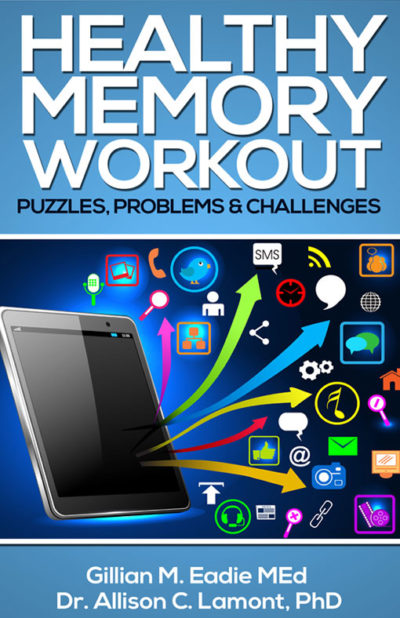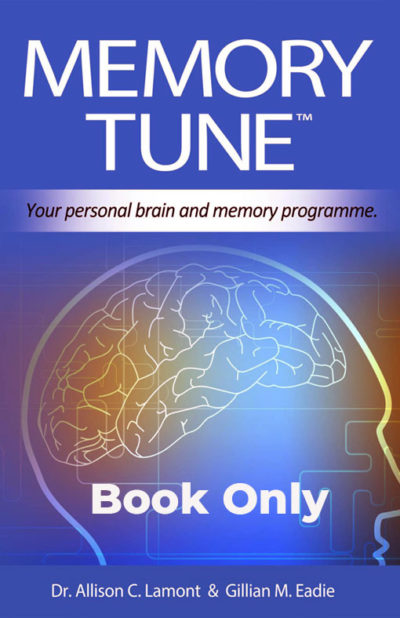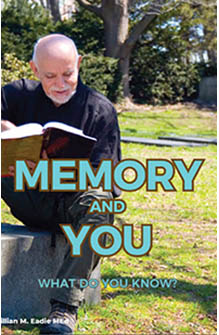Question:
Reading is a very good activity. Is reading aloud, say for 10 minutes a day, even better?

Dr Allison Lamont:
The advantages I can see are that someone reading aloud is more likely to be exclusively focused on the task than when reading silently. When reading silently we often skim read and probably read much more quickly without giving the words time to process. Having to enunciate each word prevents speed reading when the meaning may not be picked up as well.
Secondly, you are also giving yourself an auditory memory trace – and we know that two memory traces are an advantage when recalling information. The advantages of the reading aloud will be strengthened if your class attendee then goes on to recall what she has just read – doesn’t have to be word-for-word but he/she is quite likely to remember more detail that if quickly and silently reading.
Try this ‘experiment’ yourself – reading for several minutes silently then recalling what you can. Then read a different passage aloud for the same length of time.
Is more remembered? Did you notice a difference in the volume of reading that could be done in 10 minutes silently versus aloud?
Question:
Is there a link between a good memory and high IQ? (Intelligence Quotient).

Dr Allison Lamont:
Research literature doesn’t tend to support the ‘common sense’ thought that a good memory and high IQ are linked.
Question:
I am studying a university paper at present and find it very difficult to focus and commit the masses of information to memory, especially as I am not finding the content interesting. Have you any tips?

Dr Allison Lamont:
I am particularly interested that it seems you don’t particularly enjoy the subject and have a problem focusing. Our focus on a piece of information is the only ‘message’ to the brain that this is something we will need later. Our brain registers everything that comes in through our five senses – the brain is always on duty, always noticing. If all of that information were to be committed to memory then we would soon be in overload. The amazing brain is adapted to take signals from our strong focus on information to know what we need to retain and what is of no further use to us. For instance, if you walk through a park, your brain will register the smells, how the light falls on the leaves, how they move in the breeze, the texture of tree trunks and a plethora of other stimuli around you. Most of it doesn’t need to be remembered by most of us and it just morphs into a general ‘it’s lovely walking through here’. However, if you were an artist who wanted to paint one of those trees, your focus on the tree would soon alert your brain and you would start laying down strong and durable memory traces of the variations of colour, shape and health of the leaves, the bark texture etc. It is your focus that does that for you!
I would suggest you don’t try to remember ‘off by heart’ great amounts of information at one time. Try distilling the information into briefer notes, and then when you are familiar with the material, distilling it again into even briefer notes until you have just reminders for yourself. Once you have those ‘reminders’ processed I expect you will be able to use them to recall the full body of information.
The method of loci is probably something you have already read about. It works brilliantly if you take the time to ‘set it up’ properly. Close your eyes and imagine the floorplan of your house. Enter into the front or back door in your mind. What room are you in? Take notice and mentally walk into the next space in your mind’s eye, and so on until you have a pathway through the rooms. Repeat this several times until it is an automatic thought process. Now when you have something lengthy you have to remember, again ‘see’ yourself stepping into the first room. Recite and repeat the first little bit of information seeing yourself standing there – you may see yourself lecturing students….or giving it as a presentation….or some more unusual picture such as you hanging from the light saying it! Something memorable. Then move to the next room and another bit of information in the same way.
Truly, if you try this you will soon be able to bring to mind the passage through the house, and the associated information. And you can use this for anything you are trying to remember – lists, information, etc.
Remember, too, that repetition is a key – spaced out as well. But it needs to be thoughtful, and not just parrot-fashion. Memory takes interacting actively with the material.
Do you have a question for Dr. Lamont? You can ask it in the comments below or email your query to Gillian. We’ll share her answers to general questions over coming months.




